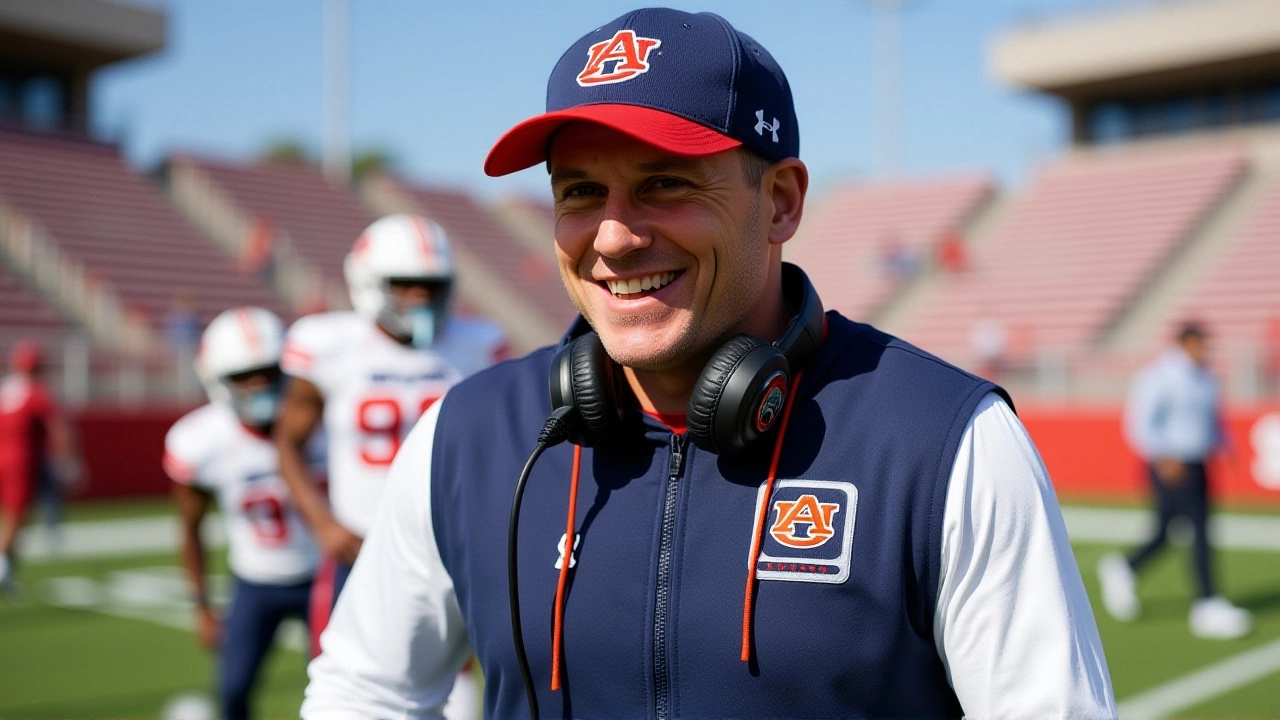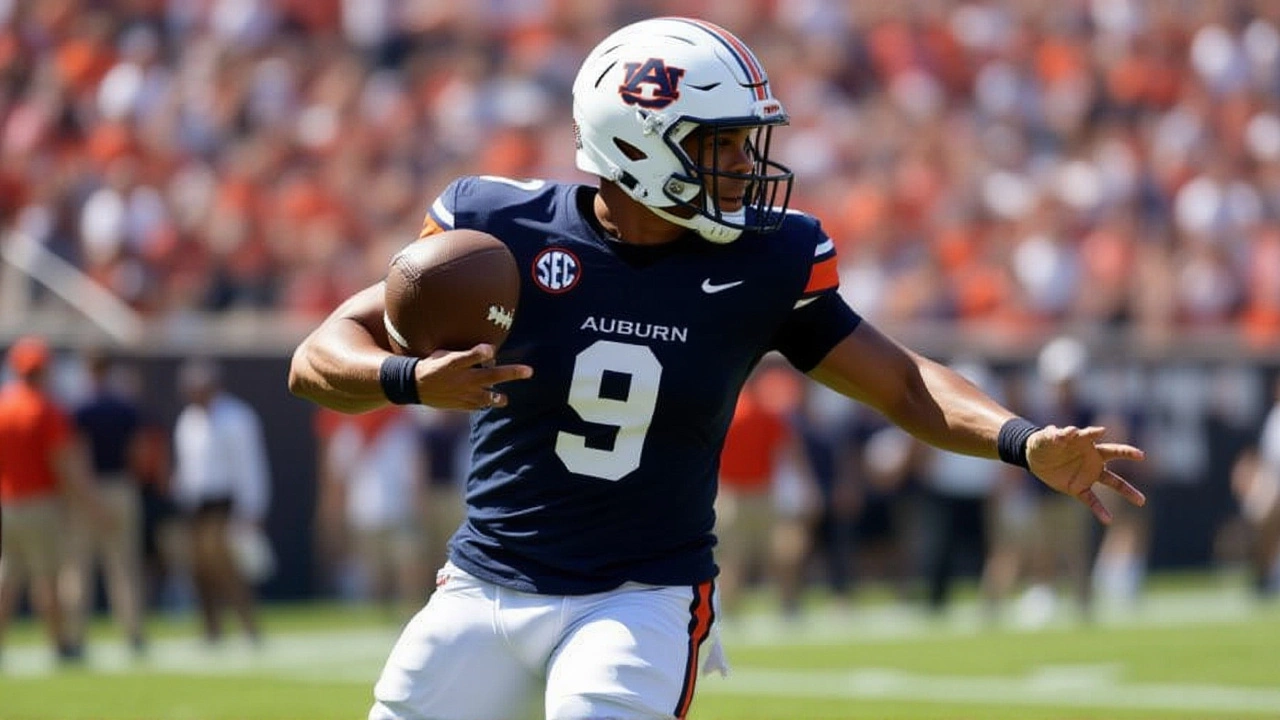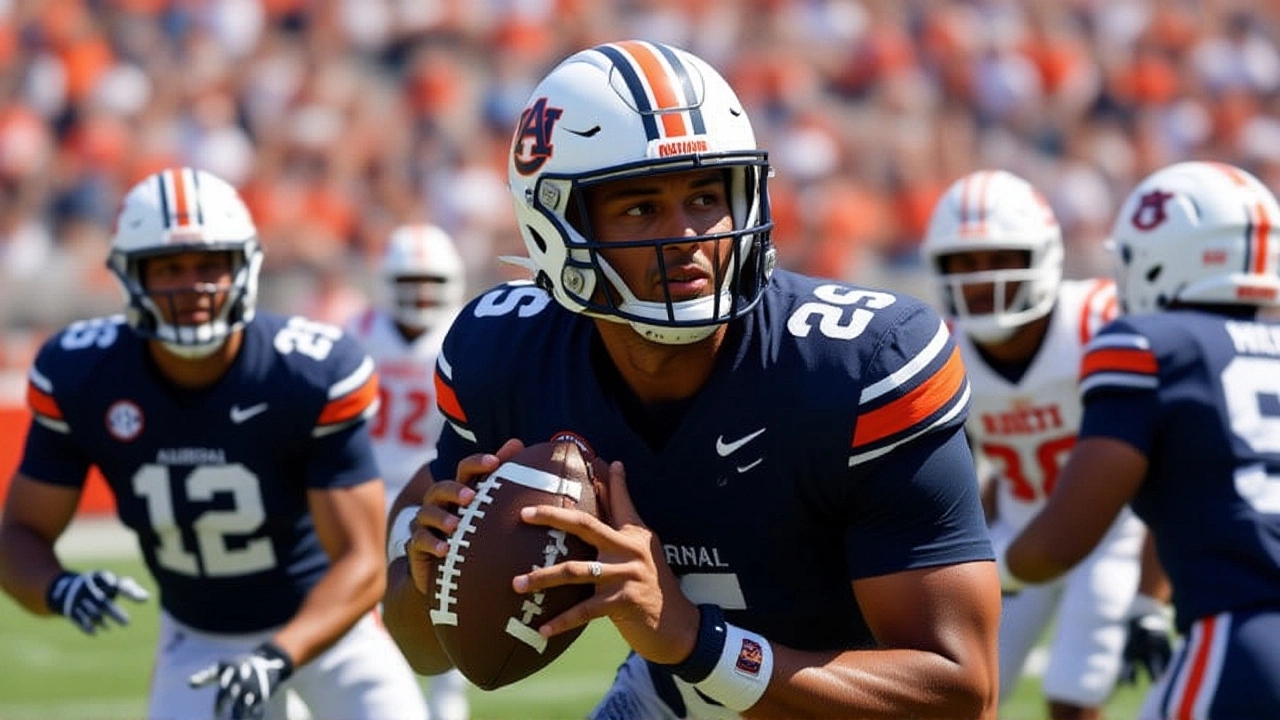Auburn Stuns Mercer 62-17 as Bowl Hopes Hinge on Iron Bowl Showdown
 Nov, 23 2025
Nov, 23 2025
On a crisp November afternoon in Auburn, Alabama, the Auburn Tigers didn’t just win—they sent a message. Hosting the Mercer Bears at Jordan-Hare Stadium on November 22, 2025Auburn, Alabama, Auburn exploded for a 62-17 rout, turning what was supposed to be a tune-up into a statement performance. The win, broadcast live on the SEC Network, wasn’t just about points—it was about survival. With just one game left before the Iron Bowl, Auburn needed this victory to keep its bowl eligibility hopes alive. After a season defined by inconsistency, turnovers, and quarterback confusion, this was the kind of dominant showing the Tigers had been chasing all year.
From Doubt to Dominance: Auburn’s Offensive Breakthrough
For much of the season, Auburn’s offense looked lost. Only 13 rushing touchdowns in 12 games last year had fans questioning whether the Tigers could ever establish a ground game. This year? They’ve turned it around. Through 12 games, they’ve already racked up 10 rushing touchdowns in just three contests, a transformation driven by a rebuilt offensive line and a running back duo that’s finally clicking. Jeremiah Cobb, the bruising running back, tied with quarterback Jackson Arnold for the team lead with four rushing touchdowns each. But it was Arnold who stole the show—not just as a passer, but as a runner.
On a critical third-and-goal late in the second quarter, Arnold took the snap, rolled right, and lowered his shoulder into a Mercer linebacker like a freight train. The crowd roared. The defense collapsed. The ball crossed the goal line. Jeremiah Wright, Auburn’s starting guard, later told reporters: "That shocked me today because I was right there beside him on that quarterback run. He lowered his shoulder and laid the boom on the defender. I was pumped up, juiced—because we don’t get to see that side of the quarterbacks in practice. We try to take care of those guys."
Wright’s words captured a shift in culture. Auburn’s offensive line—featuring Wright, Xavier Chaplin, Dillon Wade, and Connor Lew—has gone from being a liability to a foundation. Their zone-blocking scheme, once inconsistent, now opens lanes like a well-oiled machine. And with tight end Brandon Frazier providing reliable blocking and occasional receiving threats, the Tigers finally have balance.
Mercury in Motion: Mercer’s High-Flying Attack
Don’t let the final score fool you. Mercer isn’t a pushover. The Mercer Bears, an FCS program out of Macon, Georgia, entered the game averaging 41.7 points per game. Their offense, led by freshman quarterback Braden Atkinson, was one of the most efficient in the FCS: 3,253 passing yards, 33 touchdowns, just five interceptions, and a 68.7% completion rate. And he’d been sacked only twice all season—remarkable for any quarterback, let alone a freshman.
His top target, sophomore wide receiver Adjatay Dabbs, averaged 20.1 yards per catch and had seven touchdowns. Meanwhile, 6-foot-4 safety Carmelo O'Neal led his defense with eight passes defended and 33 tackles. Mercer’s scheme, as noted by The League Winners, relied on power runs, quick slants, and exploiting mismatches. But against Auburn’s upgraded secondary and relentless pass rush, those weapons were neutralized. The Bears managed just 17 points, their lowest output since Week 3.

Recruiting on the Sidelines: The Real Game Within the Game
While fans watched the scoreboard, Auburn’s coaching staff had a different one in mind. The game was also a recruiting showcase. 247 Sports reported that a limited but high-value group of 2026 prospects—including three-star offensive linemen and dual-threat quarterbacks—were in attendance. Several underclassmen from Alabama and Georgia were watching closely, particularly the performance of Wright and Arnold. One recruit, a 6-foot-5, 290-pound tackle from Huntsville, told a scout: "I came for the Iron Bowl, but I left thinking this line can block. That’s what I want to be part of."
Even with the focus shifting to Alabama next week, Auburn’s staff made sure the Mercer game served its dual purpose: win, and recruit. The message was clear: this program isn’t broken—it’s rebuilding. And the pieces are starting to fit.
What the Numbers Really Say
Pre-game predictions varied wildly. College Football News forecast a 44-10 win with a "Must-See Rating" of just 1.5 out of 5, calling it a "necessary but uninspiring" matchup. ESPN UK, however, captured the real drama: 62-17. The betting line—Auburn -27.5—wasn’t wrong. The over/under of 51.5 was blown out. Auburn’s 62 points were their most since 2021. The defense held Mercer to 267 total yards, forced three turnovers, and sacked Atkinson three times—a stark contrast to his season-long protection.
And here’s the kicker: Auburn’s punter, John McConnell, flipped field position five times, with two punts landing inside the 10-yard line. That kind of special teams discipline, often overlooked, may be the quietest reason Auburn is still alive for a bowl.

What’s Next? The Iron Bowl Looms
With bowl eligibility now secured, the real test arrives next Saturday: Alabama. The Iron Bowl isn’t just a rivalry—it’s a referendum on DJ Durkin’s tenure. If Auburn can hang with Alabama’s defense, even in defeat, it signals progress. If they get blown out again, the questions about Durkin’s future will intensify. But for now, the Tigers have something they haven’t had all season: momentum.
And for Arnold? The dual-threat quarterback who was once expected to be a backup? He’s now the face of the offense. Rumors that freshman Deuce Knight might transfer after the season? Those are fading. Knight played just one series Saturday. Arnold played the rest. And he didn’t just win—he dominated.
Frequently Asked Questions
How did Auburn’s offensive line improve so dramatically this season?
Auburn’s offensive line added four new starters in 2025, including transfer Xavier Chaplin from Georgia Tech and redshirt freshman Connor Lew, who earned the left tackle spot after a strong spring. The unit now runs a hybrid zone-scheme that emphasizes quick footwork and coordinated double teams, a system installed by new offensive line coach Marcus Hightower. Their 10 rushing touchdowns in three games this season—up from 13 in all of 2024—reflect the transformation.
Why was Jackson Arnold chosen to start over Deuce Knight?
While both quarterbacks played in the Mercer game, Arnold started due to his superior decision-making and leadership under pressure. Coach Durkin noted that Arnold completed 78% of his passes against Mercer and added 112 rushing yards on 12 carries. Knight, a highly-touted recruit, struggled with consistency in practice and was limited to one series. Arnold’s ability to extend plays and protect the ball has made him the de facto starter, despite Knight’s higher recruiting ranking.
What impact did Mercer’s quarterback Braden Atkinson have on the game?
Atkinson entered the game with 33 touchdowns and just five interceptions, but Auburn’s defense held him to 189 passing yards and two sacks. His usual rhythm was disrupted by constant pressure from Auburn’s edge rushers, and his top target, Adjatay Dabbs, was held to just 42 yards. Atkinson’s 68.7% completion rate this season made him one of the most efficient FCS quarterbacks—but Auburn’s secondary, led by freshman corner Kameron Smith, neutralized his timing.
Is Auburn still in contention for a bowl game after this win?
Yes. With six wins now, Auburn has secured bowl eligibility, needing only one more win to guarantee a spot in a New Year’s Six or major bowl. Their final game against Alabama on November 29 will determine whether they earn a higher-tier bowl bid. If they win, they’ll likely land in the Music City Bowl or Las Vegas Bowl. A loss still keeps them in the postseason, but likely in a lower-tier game like the Fenway Bowl.
How did recruiting efforts influence Auburn’s performance?
The presence of 12 top-2026 recruits at Jordan-Hare Stadium created an electric atmosphere that visibly energized the team. Several players, including Jeremiah Wright and Jackson Arnold, mentioned in post-game interviews that seeing future teammates in the stands made them play harder. Auburn’s 2026 class, currently ranked 18th nationally, gained three commitments the day after the game, including two offensive linemen who cited the team’s physicality as a key factor.
What does this game mean for DJ Durkin’s future at Auburn?
This win was Durkin’s first in a non-conference game since taking over in 2023. With bowl eligibility secured and offensive progress visible, his job security has improved—but not secured. A loss to Alabama would reignite calls for his replacement, especially from alumni who remember the days of Gus Malzahn. A win, however, could buy him another year, especially if Auburn’s recruiting momentum continues. The next 72 hours will be critical.